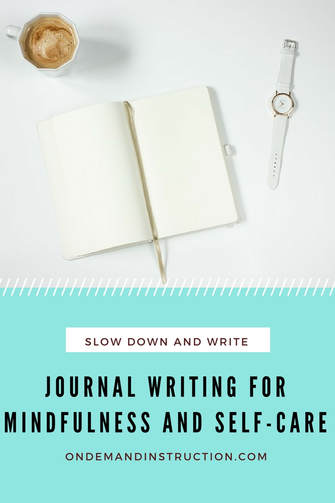
Journaling is a therapeutic form of personal writing that can open up avenues for creative, expository, and reflective writing. We can start out journaling in one direction but change it over time easily. Since we have an audience of one when we journal, we can be flexible with ourselves as writers and fluid with the writing process and our writing outcomes.
People who journal tend to start with a diary-style journal. Many will take note of things that happened during the day, major events, and changes they observe in tone, emotion, and atmosphere. This kind of journal writing can be useful to someone who is processing complicated emotions, keeping track of changes at school or work, or looking for keys to what works best in life. Reflecting on life can help guide writers through a healthy process of looking back when considering the present and the future. About an equal number of writers use their journals for creative writing. Getting a writer’s journal or a creative writing journal started might be a bit of a slow process for some, but it can provide opportunities for collecting ideas on paper which can be used in more formal writing. Sometimes writers are rudderless on how to make the shift from a reflective diary to a creative journal, but starting off with creative writing prompts can help. Once the process starts and the creative ideas start flowing, the momentum tends to build up and sustain itself. How do we Fall into Writing Slumps?
|
About the SiteWelcome, Writers! Archives
September 2023
|








 RSS Feed
RSS Feed